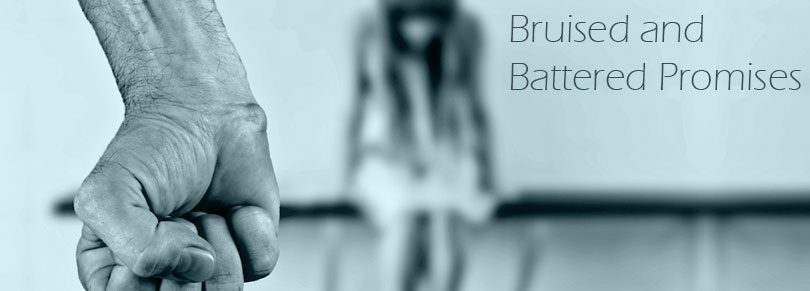Q. My wife and I had an argument the other day because I forgot to buy something on the grocery list. In the midst of our argument she slammed the door on me and refused to talk to me or look at me. I thought this would stop but she continued to snub me for two whole days. It was a living hell, two days of silence from someone you love is torture. She acted as if everything was normal after those two days but I felt like I had no opportunity to sort things out and it left me feeling more angry and helpless. This has happened a couple of times now. I don’t know if this is normal behavior, how should I handle this?
It sounds like you are feeling frustrated and powerless in this situation. In physical and verbal abuse the pain is directly inflicted and is more apparent. However, in this form of emotional abuse called the ‘silent treatment’ the suffering inflicted is more ambiguous and manipulative. When you are at the receiving end of the silence it’s maddening because you can’t stop yourself from wondering what the other person is thinking. You also feel ostracized and lonely.
It brings in a sense of resentment and bitterness against your spouse which may grow with time. Firstly, be aware of when this behavior usually occurs. It may help you see a pattern or be aware of what statement/ issue sets off this behavior.
When your spouse uses the silent treatment, it’s important to explain to her that you want to talk to her about the problem or issue. Explain that you are aware of what she is doing to you and how it hurts you.
Remember she is doing this deliberately to try and make you feel miserable. If you give in, she succeeds in getting the desired result and she will continue to do so in the future. It is an unhealthy way of coping and can even destroy the relationship in the long run. Therefore, it is essential that you prevent it from working. Let her know that you value her but don’t approve of this behavior. If she continues the emotional abuse you are not responsible for her behavior.
There is nothing you can do to make her stop. You may beg, plead and apologize continuously but that only reinforces repeating the same behavior again. Admit to her that this behavior doesn’t help the relationship. Let her know you’re open to working things out if she expresses what is on her mind. If at some point she is ready to take help, give her the support she needs. It may also help to seek out material to improve communication within your marriage, conflict management, fighting fair etc. If you have access to counseling services, it may prove useful.
Q. In my 10 year relationship I have been subject to physical abuse by my husband on many occasions. Sometimes my face carries visible wounds which I try to hide; sometimes I tell people I banged my head or fell down. I feel so low and discouraged. My children are still young and I want to protect them from witnessing such violence. My husband constantly blames me for losing his temper and says that if I behaved better he would not have to hit me.
Physical abuse is considered a crime punishable by law. It is the most severe and life threatening of abuse to receive. It sounds like you have faced up to such physical trauma all alone and the wounds that you carry within you are longing for healing and intervention. You have chosen to take the initiative of sharing your story and that takes both courage and honesty. Firstly, I am concerned about your physical state.
It would help to do a complete health check up by a doctor. Secondly, deep seated anger, depression, panic attacks and being in a constant state of alert are a few of the common results of domestic violence. I would encourage you to start sharing your story with a few trusted friends /counselor as you may be feeling guilty and confused about whether you are responsible for your husband hitting you.
The truth of the matter being that you cannot be blamed for his violent behavior. Your self esteem has taken a beating as well so it is good to be able to share what you feel and think with someone who can be supportive and trusted in a safe environment. While having an abusive childhood is one of the reasons why abusers behave the way they do, there are other contributing factors such as jealousy, mental illness, stress, and depression amongst others.
It is important to protect yourself if you are living with an abuser. If your husband at some point is willing to take help, there are counselors who are available to assess and equip him with skills. It is imperative that you protect your child from becoming a potential abuser due to the exposed risk of physical abuse. Your children need to have ‘safe’ places (a relative or a friend’s house) they can go to during times of emergency.
Witnessing physical abuse can have adverse affects on them. However, they can be helped to deal with the stress in a healthy manner with non-violent methods. If important people in your child’s life can be confided in, it will help them get special care and understanding.
Mrs. Anne Oommen is a Counseling Psychology professional. She is currently working as a professional Counselor and also works as a part-time lecturer with Christ University.






